
All Solutions
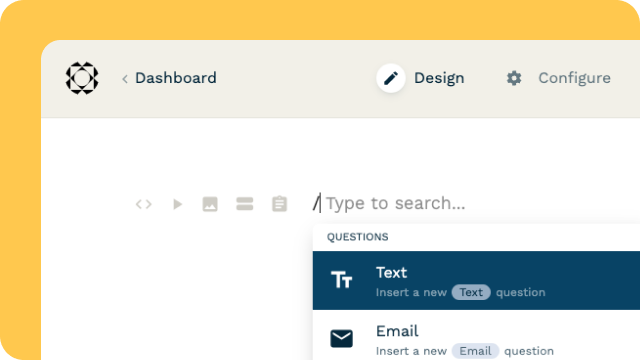
Explore all the solutions you can create with Paperform: surveys, quizzes, tests, payment forms, scheduling forms, and a whole lot more.
See all solutions










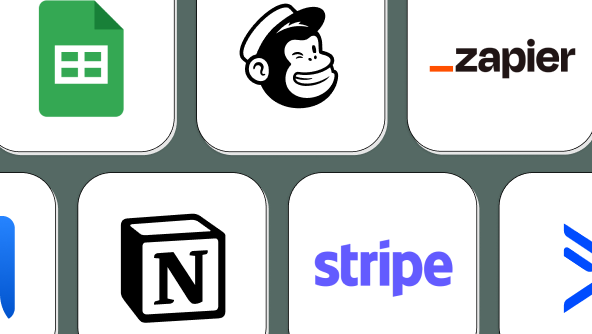
Connect with over 2,000 popular apps and software to improve productivity and automate workflows
See all integrationsProducts
Solutions
All Solutions

Explore all the solutions you can create with Paperform: surveys, quizzes, tests, payment forms, scheduling forms, and a whole lot more.
See all solutionsIntegrations

Connect with over 2,000 popular apps and software to improve productivity and automate workflows
See all integrationsResources
110 Online Course Ideas (With Real-Life Examples for Inspiration)

https://www.sellerapp.com/blog/amazon-seo-guide/
With the rise of elearning options, it's only natural to be curious about getting into the game. Teaching online is a great way to earn some extra cash for sharing your unique skills and passions.
But, like any business, you can’t just up and start an online course without an idea. With that in mind, we’ve put together a colossal list of 110 online course ideas to give you inspiration. They’re split into industries and accompanied by a real-life success story to give you further context.
The Golden Age Of Online Learning
The COVID-19 pandemic and the digital shift that followed revolutionised both the way that companies do business and the way customers expect to do business. This, along with technological advancements, led to virtual solutions like ecommerce solutions, webinars replacing in-person events, and a rise in online learning.
The flexibility and learning possibilities that have emerged from necessity are likely to shift the expectations of students and educators, diminishing further the line between classroom-based instruction and virtual learning.”
— Online Education in the Post-COVID era, in Nature Electronics (2021).
Luckily, there are benefits to online learning (also called ‘elearning’) that make it an effective alternative—and often a viable replacement—for in-person education.
Benefits of Online Learning
Flexibility: Need to juggle study with full-time work? Prefer to work late at night than early in the morning? By learning online, students can work through lesson plans at their own pace and control their own schedule.
Time Management: elearning is a great way to practice and improve time management and scheduling skills. These are important abilities that employers of any shape and size value in the workplace.
Improve career prospects: Got a job and want to learn new skills? Or looking to learn a few new things to really make your portfolio pop? Online courses offer a path to higher-paying jobs and career advancements.
Lower costs: Studying an online course is much cheaper than traditional courses or tertiary education. Everything is included in the single fee, so you don’t have to worry about things like admin fees and ultra expensive textbooks.
More choice: Whether you want to learn digital marketing, graphic design or how to write an award-winning movie, there’s an online course for every topic.
Grow your network: If you’ve signed up to a course for a specific niche, you’ll be with a cohort of like-minded people with similar interests/goals. It’s a great way to grow your professional network (or make new friends).
Not just for work: Courses don’t just have to be about leveling up work-related skills. It can also be a great way to pick up new hobbies and meet people online.
Try to think about these benefits when thinking about your own online course. Brainstorm how you can leverage these to give your students the best possible offering.
“Studying online has obvious practical advantages for those who are time poor, who are juggling work, personal lives and study. Online learning gives students greater flexibility to choose when, where and how they study.”
— David Seignior, Learning Designer at the University of Melbourne. “
These benefits have led to a greater demand in high-quality, elearning solutions, making it a great time to build an online course of your own.
How To Create An Online Course
Becoming an online course creator isn’t as simple as putting together a presentation, recording a video and uploading it to your website. But with some forethought, organisation, and a bit of work, you can be on your way in no time.
Here’s a quick rundown of the steps you’ll need to take to start your online course.
1. Identify your niche
The first step is to identify a subject that you specialise in—this could be anything from personal training to running a bakery. Whatever niche you settle on, the key is to be both passionate and knowledgeable about it.
To questions to consider:
- What do you want to teach?
- What do you know that others may want to learn?
It goes without saying, but you can't fake this. Your audience will be able to tell if you’re just mailing it in, or regurgitating other people’s information for your own benefit.
Moreover, teaching a class you aren't interested in won't be a lot of fun for you, either. Both parties will benefit from instructors investing some time in discovering what particular class they are best suited to teach.
2. Gauge interest
It’s important to make sure there’s an interested audience before you get too deep into course planning. If people aren't interested in your course, it's better to know early so you can pivot.
A great way to gauge interest is to make a landing page. This will allow you to give an overview of your course, explain what people will learn, and ultimately collect sign-ups from interested parties.
With Paperform, you can create stunning, feature-rich landing pages for any course, all in our easy to navigate editor. Plus, once you've got your course up and running, you can use that same digital Swiss Army Knife of tools to create forms, surveys, quizzes and more to keep your students engaged.
While you may not have started creating your materials yet, try to include any information that will encourage your target audience to sign up. Include a clear call-to-action for folks to sign up, register their interest or even offer ‘early bird’ deals for people willing to purchase.
Based on the response you get you’ll be able to find out whether your online course idea has legs or not. With some luck you’ll have a few sign-ups and new additions to your email list that you can leverage for marketing outreach.
Form a better life now.
3. Research your subject
Once you’ve settled on your course topic, it’s important to research not only what you will teach, but also what courses are already available on the topic. Think about what type of things people want to know about the subject, and what gaps you can fill.
Now is also a good time to do some keyword research. This gives you an idea of subcategories that you can explore within your niche, as well as what kind of questions people commonly have about the topic.
For example, let’s say you’re running an online blogging course. You may find that alongside the overarching subject of “how to blog”, people search for writing tips, how to build a website and a crash-course in SEO.
Look out for different angles and use them to provide maximum value with your course. Just try not to stretch your skill-base too much—there’s a difference between a broad scope and trying to do too much.
market research survey
4. Outline the course structure
When you’ve collected all the information on the topic (and written down unique insights of your own) it’s time to develop what, in the biz, they call a curriculum. This is a concrete plan of the lessons you’ll provide and topics you’ll cover.
To make a curriculum, break down the broad topic into smaller sub-topics you want to cover, then create individual lessons for each one. Every lesson should have a clear outline and objective. For example, if you are teaching a cooking course, your curriculum may include lessons on how to properly chop vegetables one week, and how to make a pan sauce the next.
It’s a good idea to supplement each lesson with a collection of relevant resources, whether that is books, articles, YouTube videos, or your own additional content people can explore for further learning.
Assignments, activities and worksheets are useful tools to use to ensure students are engaging with what you’re teaching. Many successful courses use these after completion of a set of sub-topics, or at the end of the overall course.
5. Create your course content
Once you've done your research and planning, it's time to actually make your course. Many teachers split course content between written and video content, but you can also use things like podcasts or live webinars.
The beauty of online courses is that you don’t need any crazy equipment. You can write your content in Google Docs, use free screen recording software like Loom to record videos. If you choose to go for video courses, get a powerful and versatile video editor that can add a taste of creativity to your content. Video editing covers everything from simply adding voiceovers to your courses to including modern motion graphics for visual aesthetics and entertainment.
Paperform is a great, multi-puprose tool for educators. The interface is intuitive yet powerful, and can be used to make everything from one-page websites for presentations, quizzes, registration forms, to payment portals, to virtual escape rooms. Plus, with over 650+ unique and fully customisable templates to choose from, you can be sure you'll find something that works with your unique course.
6. Get your course online (and start making some cash)
Time to figure out what kind of online course you want to run. Will you go with a hybrid model? Hold weekly meetings on Zoom? Host your content on an online course platform like Teachable or Udemy, or build your own website?
There are plenty of tools to support your course online. Website builders like WordPress or Wix offer the features you’ll need, and many digital product solutions like Podia and Thinkific have started popping up recently as well.
You could also use Paperform for online course creation. Within the versatile platform you can manage your students, accept payments (including subscriptions), send class summaries and results, as well as run assessments or interactive quizzes—all from the one place.
Want to hold one-on-one consultations? Just connect your calendar and invite students to book a slot. Need to share downloadable PDFs, grade students and connect with tools like Notion or Google Sheets? You can do all that and more with Paperform’s app ecosystem.
course registration form
110 Profitable Online Course Ideas To Inspire You
No online course ideas turn into gold overnight. Even the top-earning online course creators had to work their tails off for years before achieving their desired results. But, there are a lot of people that have found resounding success.
Why not you, too? We’ve curated a list of more than a hundred online course ideas to inspire you to find (or create) the course you want to teach.
We’ve split these into different niches and included real-life examples where possible for a bit of additional motivation.
Health & wellness courses
 (Image Source: Elizabeth Rider)
(Image Source: Elizabeth Rider)Health and wellness online courses have always been in high demand. However, as more people get interested in gym alternatives, there has been a surge in interest when it comes to health and wellness initiatives that can be done from the comfort of your own home.
While many personal trainers and wellness instructors offer face-to-face online classes, there has been a lag when it comes to online teaching. This leaves a gap for online course creators interested in topics like cooking, working out, or wellness coaching.
Before you start planning your health and wellness course, consider that many fitness-related courses require certification. For example, you may need to be a certified gym instructor or a yoga studio instructor to give certain advice.
Potential health and wellness course topic ideas:
- Kettlebell (or any weights) for beginners
- Performing CPR at home and in the workplace
- All-natural detox guide
- Introduction to HIIT training
- Wellness retreat for remote workers
- Preparing for your first marathon
- How to manage your mental health during COVID-19
- Taking care of a child with special needs
- Crystal healing for skeptics
- Life transformation with better sleeping patterns
A health and wellness course success story:
Elizabeth Rider’s journey to full-time online health coaching wasn’t linear. Her college degree in mathematics prepared her for a career in one of the big four accounting firms.
After a particularly bad bout with a chronic illness, she decided to shift full-time to blogging and teaching online courses. Since then, she has been an advocate for healthy living through her online lifestyle and diet courses, while making six digits annually.
Personal development courses
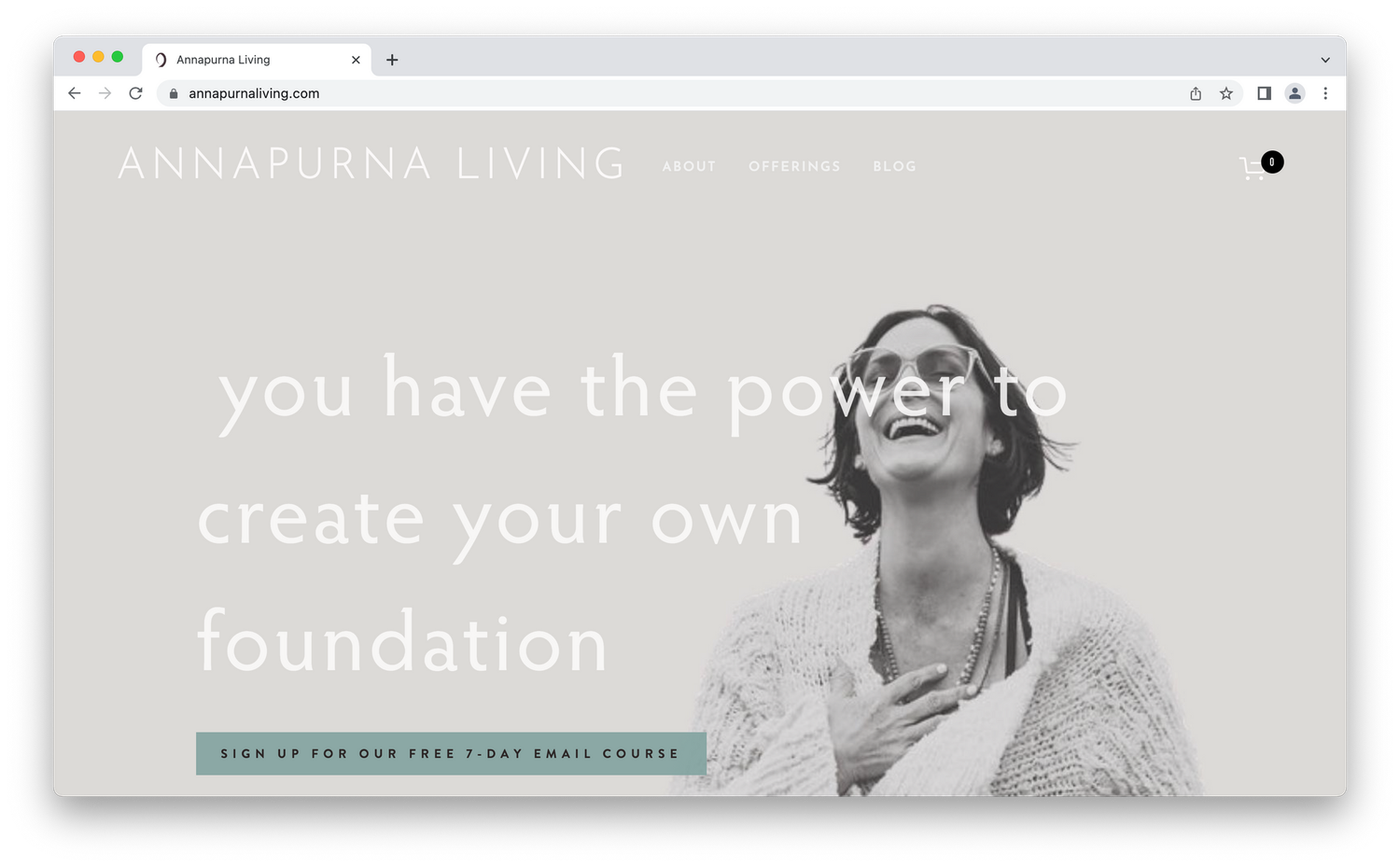 (Image Source: Annapurna Living)
(Image Source: Annapurna Living)People are always looking for ways to develop themselves. They might wish to get through a traumatic life episode, acquire useful skills, or increase their confidence. In lieu of face-to-face sessions with trainers and counselors, online personal development courses give people the boost they’re after.
The level of expertise you need to become a personal development guru varies according to the topic—some courses require intensive training and certification from an accredited testing body, while others require little training.
Potential personal development course topic ideas:
- The seven habits of highly effective people
- Presentation skills for remote workers
- Coaching for managers
- How to increase productivity
- The basics of personal finance
- 10 easy ways to deal with stress
- Professional life coach certification
- How to balance personal and work time while working remotely
- Remote social skills
A personal development course success story:
Carrie-Anne Moss founded Annapurna Living to help people connect with themselves through meditation and mindfulness. By adding her own modern twist on age-old methods, Carrie Anne gathered a large audience of loyal subscribers.
As of 2021, her Fierce Grace webinars are closed for enrollment due to increased demand, but she still offers free courses on the Annapurna Living website.
Language courses
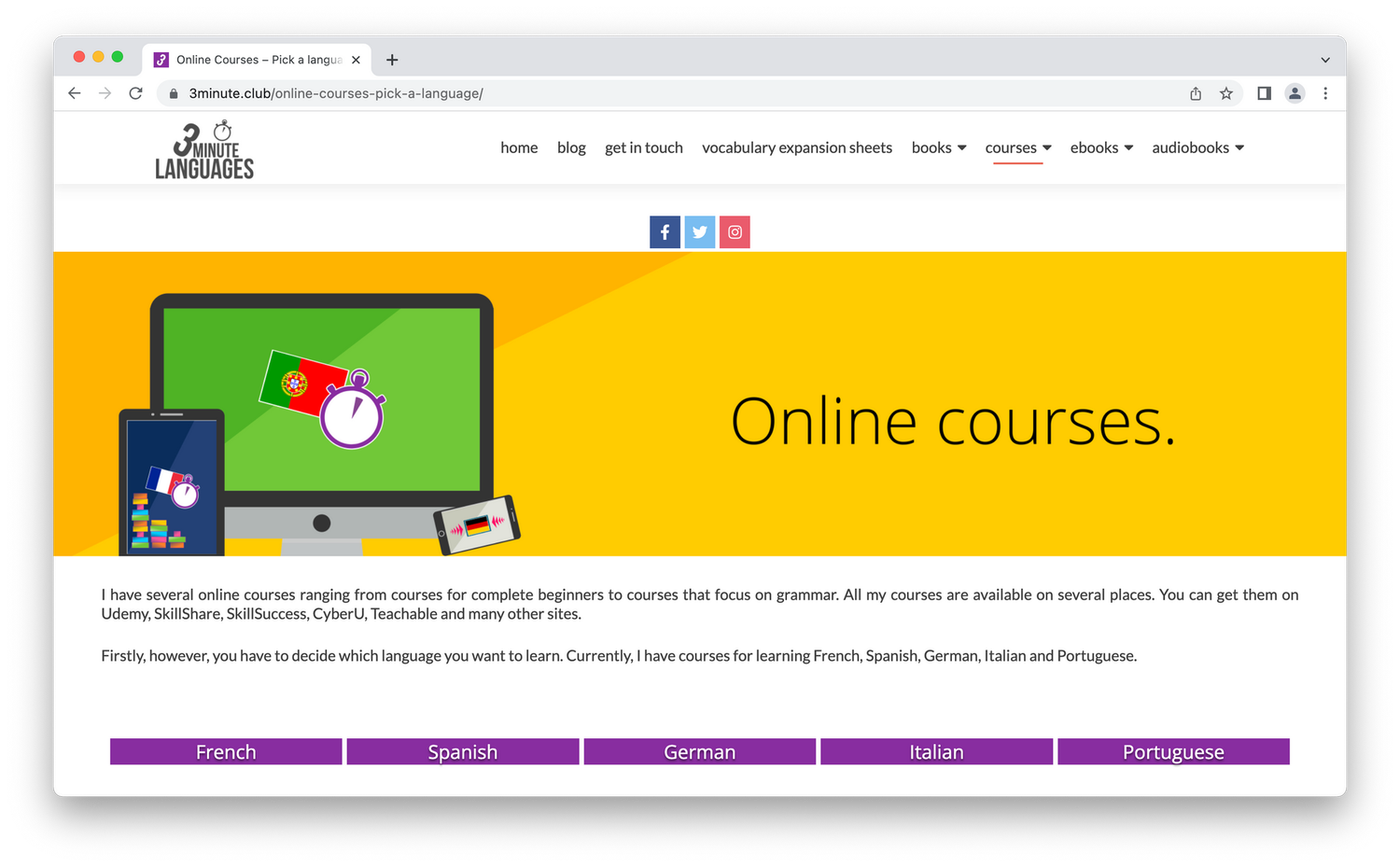 (Image Source: 3 minute languages)
(Image Source: 3 minute languages)Learning a language has always been a popular form of extra-curricular learning. Whether folks want to learn to speak french for their trip to France, or brush up on the Spanish they did in high school, the demand for language courses is huge.
There are two pretty big competitors here: Duolingo and Rosetta Stone. Think about what your new course can bring that those two monoliths can’t—things like personalised lessons, and one on one chats are good places to start.
Potential language course topic ideas:
- Essential business writing skills
- Spoken english for ESL workers
- The differences between US and UK english
- Korean for K-Pop fans
- Hindi for beginners
- Speak basic French in ten days
- The basics of Mandarin for business
- Spanish for young people
- German for travelers
- Learn sign language
A language course success story:
Kieran Ball is a language teacher based in the UK who offers online courses in French, Spanish, German, Italian, and Portuguese. His courses range from 3-minute tutorials that aim to help beginners put together complete sentences in a short time to quick grammar guides for students who are seeking to learn languages faster. His courses are so effective that he has over 300,000 students on Udemy, with glowing reviews.
Photography courses
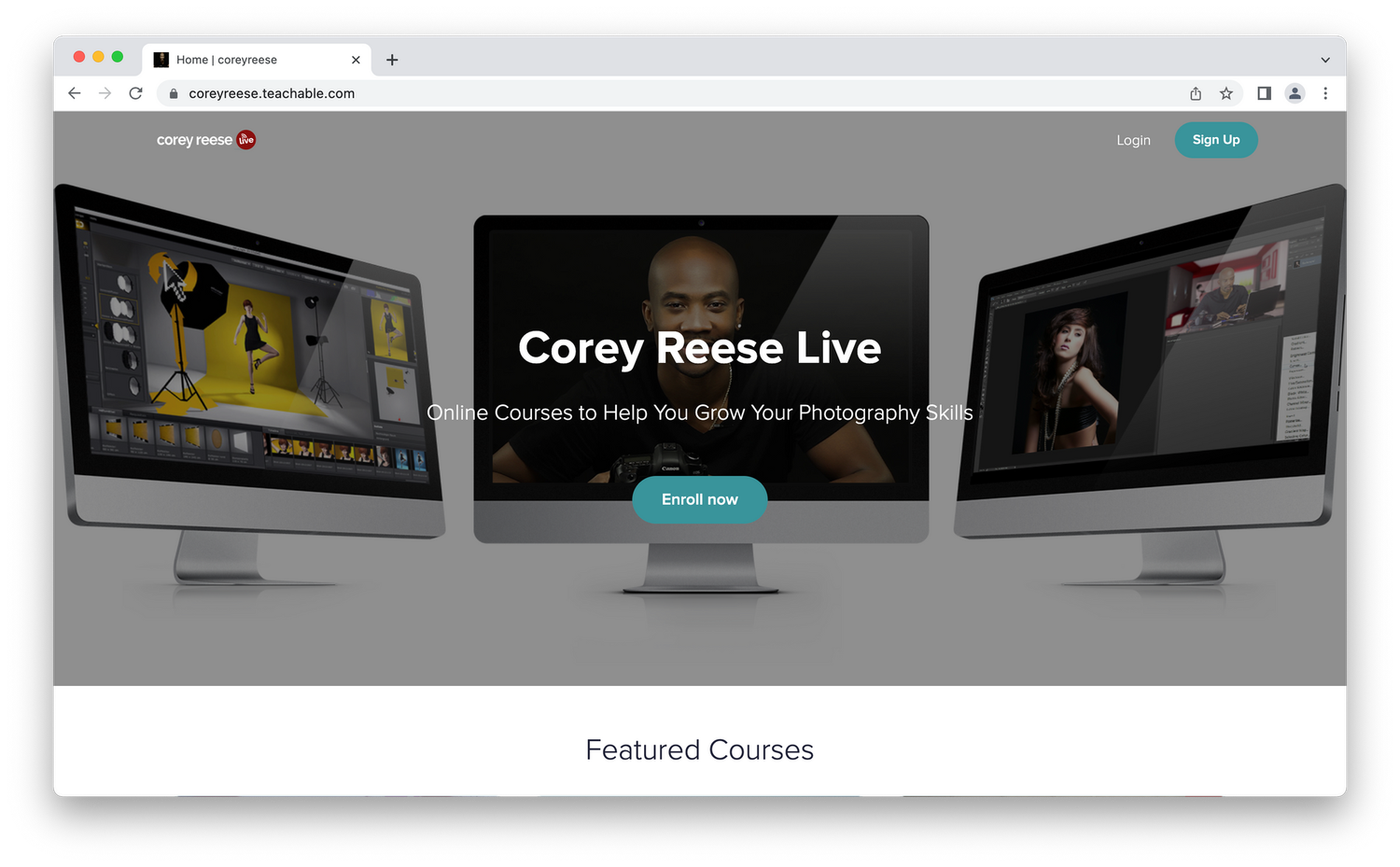 (Image Source: Corey Reese)
(Image Source: Corey Reese)Photography has always been a popular hobby, but the increasing availability of digital cameras has spawned a whole new generation of photography enthusiasts. Many amateurs dream of becoming professional photographers, and are eager to sign up for online courses to improve their skills.
You’ll need to invest heavily in equipment if you want to provide an optimal learning experience to your students. You’ll also need to put together a strong online portfolio so potential students can see your prowess and techniques for themselves in real-life situations.
Potential photography course topic ideas:
- Food photography for Instagram
- How to take perfect landscape shots
- Sports photography basics
- Adobe Photoshop and Graphic Design
- Photography pricing for product shoots
- How to use your new DSLR
- Lighting 101: playing with light and shadows
- How to take beautiful portrait photos
- A guide to wedding photography
- Posing for photos, a guide for newbies
A photography course success story:
Corey Reese is a celebrity photographer who started a YouTube channel in 2011, gaining over 400,000 views. His online courses now have over 55,000 students.
Reese’s drawing power comes from his teaching style, which breaks the art of photo composition into bite-size pieces. He has also trained countless professional photographers who are now making a living out of photography.
Cooking courses
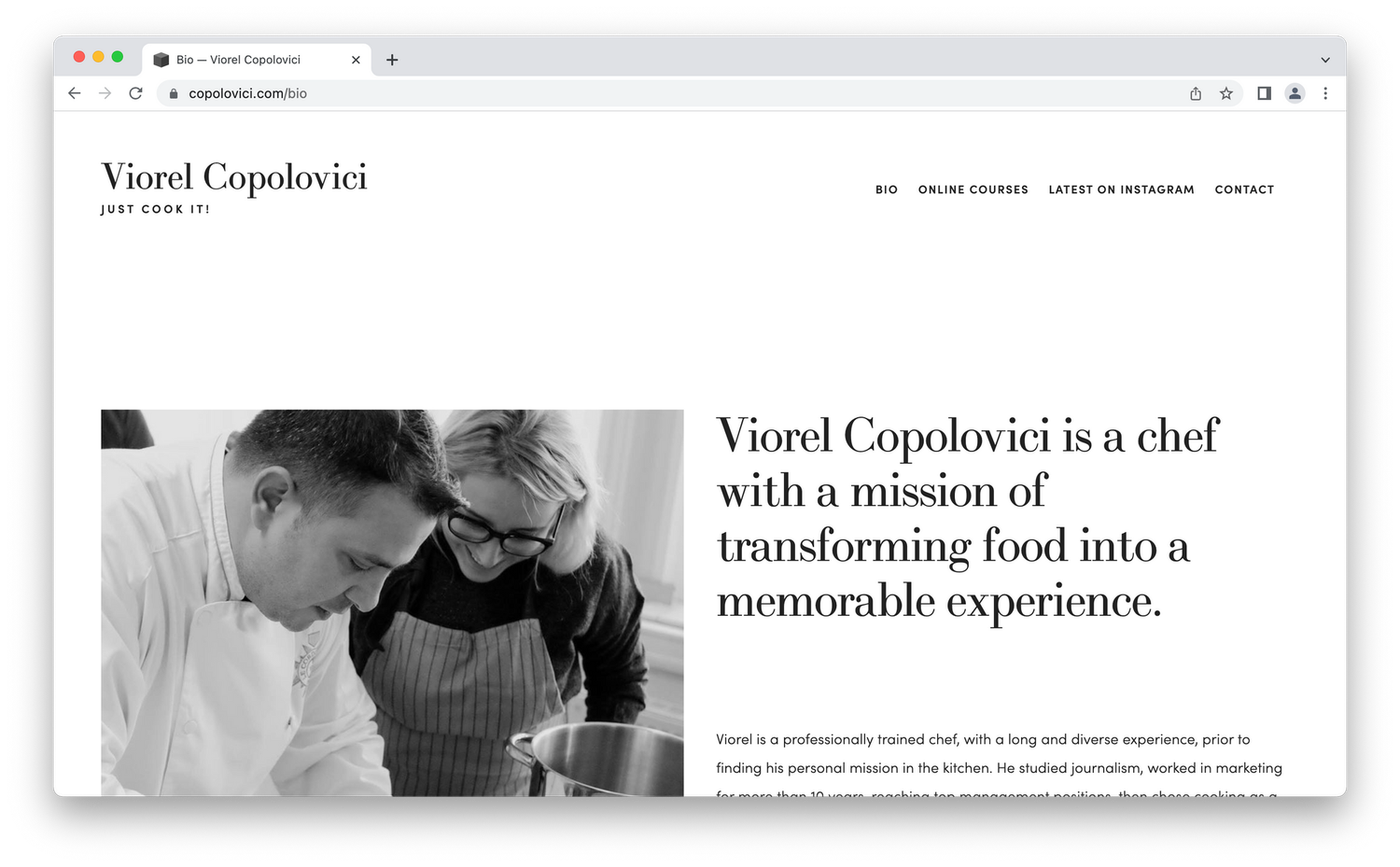 (Image Source: Viorel Copolovici)
(Image Source: Viorel Copolovici)Everyone loves delicious food. Not everyone knows how to prepare and cook their own delicious food. This makes culinary schools and tutorials one of the most profitable online course ideas—as long as you can actually cook.
Share your skills with a course and show folks how to cook awesome food from scratch. Keep in mind that this is a niche that requires solid experience. Whether you're a home chef or a trained culinary expert, having unique skills and training that the average Joe does not will set you apart.
Not everyone can be Gordon Ramsay. In the age of TV shows like Masterchef and Bake Off, people are willing to learn from amateurs as long as you show you’ve got the skills. If you’re a professionally trained chef or have experience in small business, you can also give advice on how to start your own restaurant.
Potential cooking course topic ideas:
- Healthy meals that won't break the bank
- Vegan recipes
- Essential cooking skills for first-timers
- Baking for beginners
- Keto cooking made fun
- How to make soup: from squash soup to minestrone
- Basic Italian dishes for every home chef
- Online cake decorating for kids
- Essential cocktails for entertaining at home
- Going gluten-free: a guide
A cooking course success story:
Viorel Copolovici took the long route towards becoming a professional chef. He was a marketing executive for ten years before deciding to make cooking his vocation. After running a food blog and two restaurants, he finished culinary studies at Le Cordon Bleu, London. His videos are easy to understand and follow, even for newbies who have never held a knife.
Home decor and gardening courses
 (Image Source: Kon Mari)
(Image Source: Kon Mari)Home improvement has always been a popular topic. There’s a reason that Instagram is full of snazzy shots of people’s homes and furniture layouts—people love fiddling with their decor or optimising their space.
Out of all the niches listed in this post, we’d have to say home decor and gardening courses are the easiest to enter. Unless you’re teaching something like an advanced carpentry class, there’s no need to get any special certifications or equipment to get started.
Potential home decor and gardening course topic ideas:
- Plants at home: adding a touch of green to your living space
- Minimalist decor
- How to organise your home in small spaces
- Taking care of succulents
- Interior design for home offices
- Bedroom design for optimal sleep
- Low-maintenance gardening for busy people
- A step-by-step guide to growing your own herbs at home
- Introduction to aquatic plants
- All-natural weed control and pruning
A home decor and gardening course success story:
You might know Marie Kondo from her popular Netflix series, but before she started starring in the series, she was already known for her books and videos on tidying up. Her KonMari Method Fundamentals of Tidying course consists of 10 lessons, each focusing on a specific aspect of tidying and organizing.
Just like in the series, Marie Kondo's courses teach you a way of cleaning up that simply sparks joy.
Travel courses
 (Image Source: Theresa Christine)
(Image Source: Theresa Christine)Thanks largely to social media influencers, travel blogging is a particular popular topic. Who wouldn’t want to learn how to travel for a living? While you don’t need formal education to start an online course based around travel, you do need vast experience traveling*.*
Students will know right away if your Paris travel tips come from your own experience, or were copied from a Lonely Planet guidebook. Like with any course, faking it won't benefit you or your students in the long run.
Potential travel course topic ideas:
- Travel writing 101
- How to get paid for traveling the world
- Hosting a successful Airbnb
- Travel hacks: getting around on a shoestring budget
- Cheap and safe solo travel for female tourists
- How to start a travel agency
- Camping for beginners
- How to become a digital nomad
- Family-friendly travel tips
- Working on a cruise ship
A travel course success story:
Theresa Christine wears many hats—photographer, romance writer, and podcast host. But through her online travel courses on Skillshare, she was also able to build a following as a travel writing course creator.
Her popular course, Being a Travel Blogger (Even When You’re Not Traveling!), has more than 5,000 students and is one of the best online courses on the subject.
Arts & craft courses
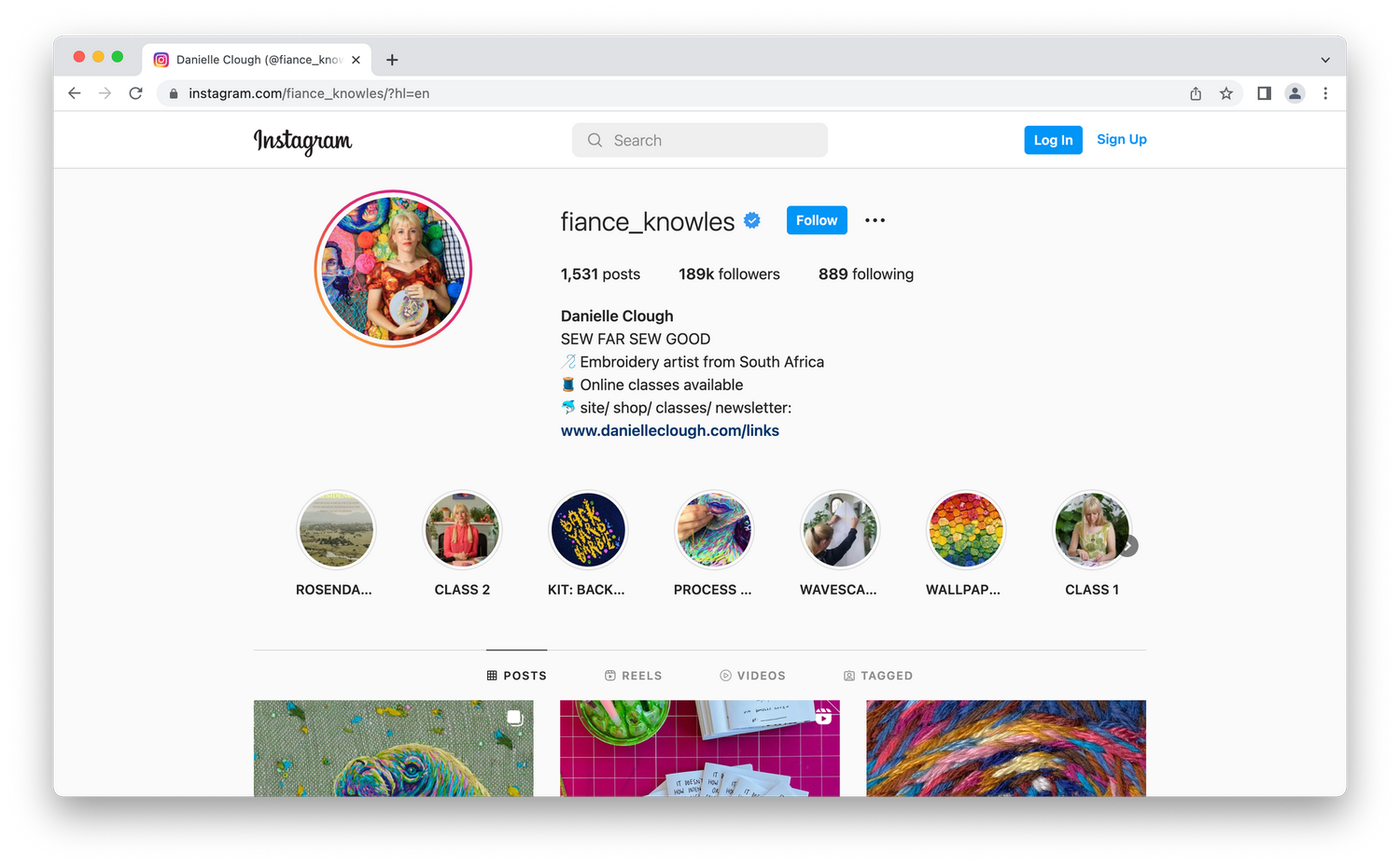 (Image Source: Instagram)
(Image Source: Instagram)As we touched on earlier, online course topics don’t always have to be about serious things like marketing strategy and entrepreneurship. Sometimes people just want to learn cool new skills or improve their drawing.
To run a successful arts and craft course, you should have a certain creative talent and know your material back to front. It’s important to be able to explain complex processes and ideas in a way that’s easy for first-timers to understand. Channel your inner Bob Ross.
There’s also a real opportunity at the moment to teach artists about bringing their creations to a larger audience. There’s a shortage of courses around content curation, exhibits and art pricing, which are all important elements for budding creatives to understand.
Potential arts and crafts course topic ideas
- Sell your artwork online
- Make money out of NFTs
- The basics of drawing
- Essentials of graphic design
- Master Origami in two weeks
- Sewing skills
- Colour theory for non-artists
- Designing your brand
- How to make jewelry and sell it online
An arts and craft course success story:
Danielle Clough is a good example of online learning’s ability to educate people across the world. Aside from collaborating with performing artists under the stage name Fiance Knowles, she is also a visual artist who creates art through embroidery.
Her online course, Painting with Thread, has more than 10,000 students on SkillShare.
Digital marketing and sales courses
 (Image Source: Brilliant Affiliate)
(Image Source: Brilliant Affiliate)Digital marketing isn’t going anywhere. Whether folks want to switch careers or level-up their existing skills, marketing is always a popular course topic. Digital marketing covers such a wide umbrella of topics—from social media and SEO to blogging on WordPress—that the sky's the limit in terms of what you can cover.
Because digital marketing is such a wide-ranging industry with different applications, there is a massive demand for high-quality courses. Just be aware that there are lots of shady marketers out there looking to make some easy cash with an online course. Separate yourself by providing specific, valuable lessons from your education or unique experience.
Potential digital marketing and sales course topic ideas:
- Fundamentals of content marketing
- Affiliate marketing made easy
- SEO for Amazon
- How to increase your social media engagement
- Branding fundamentals for startups
- Boost leads with high-performing event landing pages
- The ultimate guide to email capture
- Sales management masterclass
- How to manage a remote sales team
- Introduction to business development
- Cold calling and email outreach
A digital marketing and sales course success story
Course content creator Justine Grey of Brilliant Affiliate helps thousands of aspiring affiliate marketers learn how to monetize their content and turn it into a true online business. She does it not by promising too much, rather by emphasizing that affiliate marketing is a long-term passive income channel with gradual results.
Mathematics and science courses
 (Image Source: Udemy)
(Image Source: Udemy)Science and mathematics are ways of understanding the world: observing, measuring, and predicting natural phenomena and applying them to human problems. These have always been popular avenues for learning, since Aristotle taught philosophy and science in Ancient Greece.
With many people becoming more conscious about the environment and humankind’s effect on it, the demand for online courses based around the sciences has grown even higher.
However, this makes it a very competitive market with a high barrier to entry—you’ll be competing with course creators from some of the world’s top universities.
Potential mathematics and sciences course topic ideas:
- A basic introduction to physics
- Sustainable water use in the home
- How to deal with vaccine hesitancy
- Ten ways to reduce your carbon footprint
- Maths hacks you wished you learned at school
- Psychology 101: how your brain works
- The science behind your favourite drinks
- Using food to combat disease
- Introduction to astronomy
- Science communication for parents
A mathematics and science course success story:
Leandro Caruso brings more than 10 years of experience building solar power installations in the U.S. and Australia to his online courses. As an environmental engineer, he is considered one of the top solar energy advocates in the world and has a successful course to match.
Programming and data science courses
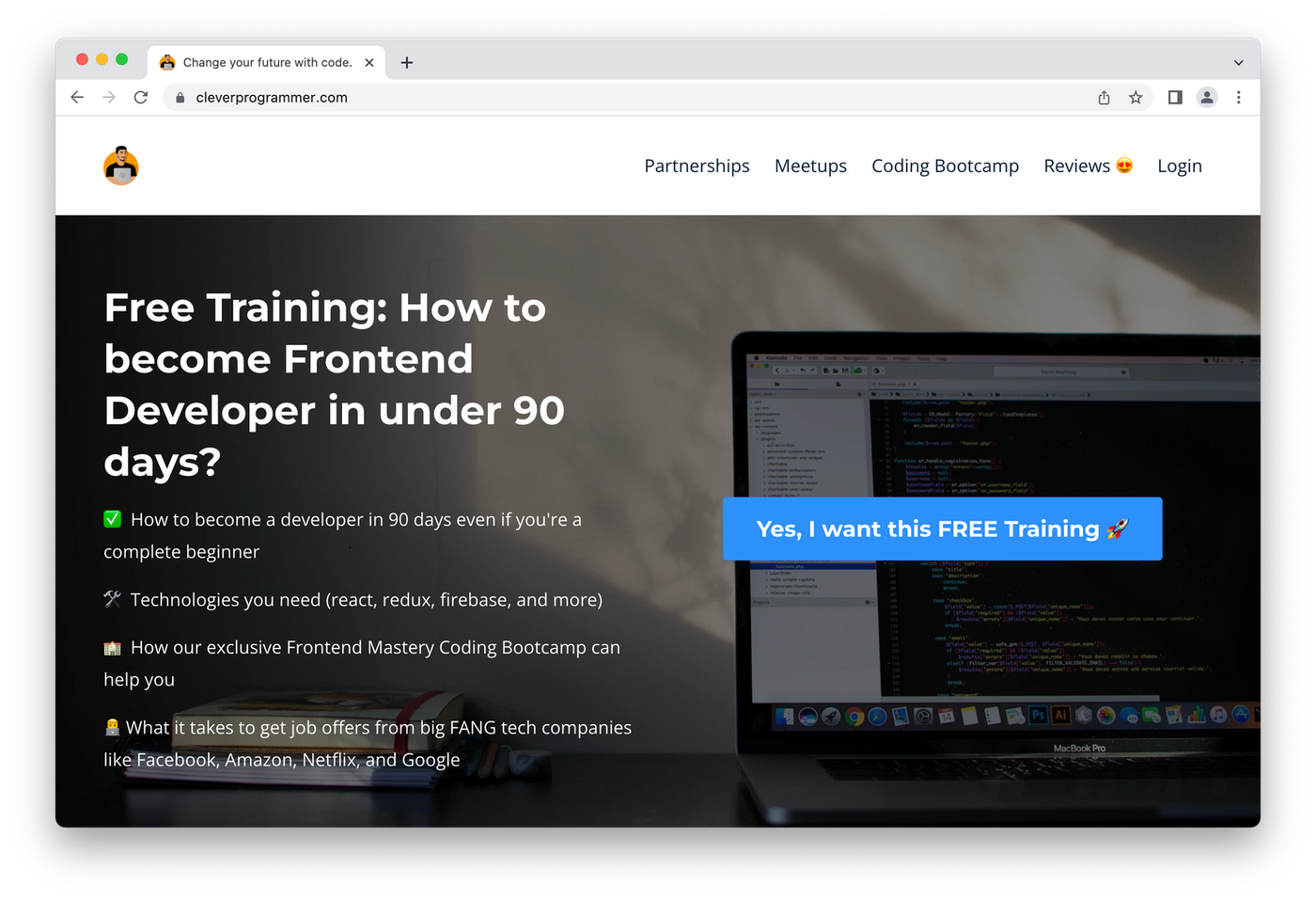 (Image Source: Clever Programmer)
(Image Source: Clever Programmer)Programming and data science are two niches going through a major growth phase. Businesses are either starting to go digital or strengthen their online presence, so they need programmers, developers, and data scientists to help them accomplish those goals.
To teach any sort of programming or web development courses, you have to have advanced knowledge of the tools you’ll teach. For example, a data science class will attract more students if the course creator has advanced statistical programming and analysis degrees. For more common tools such as C++ or Excel, you will need experience and knowledge of programming trends.
Potential programming and data science course topic ideas:
- Fundamentals of statistics
- Python for researchers
- Algorithms and data structures
- C++: the basics
- IT project management
- Full stack web development tools
- The applications of Blockchain
- Automate your processes and cut busywork
- Cybersecurity essentials
A programming and data science success story:
Rafeh Qazi, one of the biggest online course creators and the founder of Clever Programmer, has a community of over 100,000 students. Qazi posts free course content on platforms such as Udemy and paid courses on his website.
Over To You
Whether you’re looking for some extra money or want to transform one of these online course ideas into a full-time job, being a course creator is a viable online business strategy.
As the old proverb goes, “a journey of a thousand miles begins with a single step." So why not get started with Paperform today? From building a website to advertise your course, to engaging quizzes, to powerful payment pages and contact forms,
Paperform is a multi-use tool that has the integrations and analytics power to support your course creation needs, and look effortlessly gorgeous doing it. Give it a go yourself with a free Paperform account—no CC required.
Form a better life now.
Get your 7 day unrestricted trialChoosing an automation tool as a small business shouldn’t feel overwhelming — but it often does. Wit...
When Kathleen Celmins launched her AI-powered app, GlowSocial, she quickly realized that building cu...
This article will help you untangle the web of very “samey” WordPress form builder plugins.
Trying to decide between Zapier and Stepper? This in-depth comparison breaks down pricing models, wo...